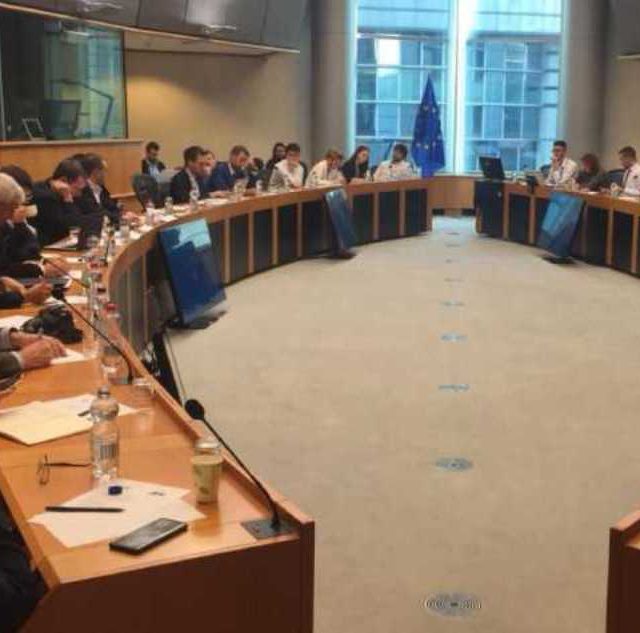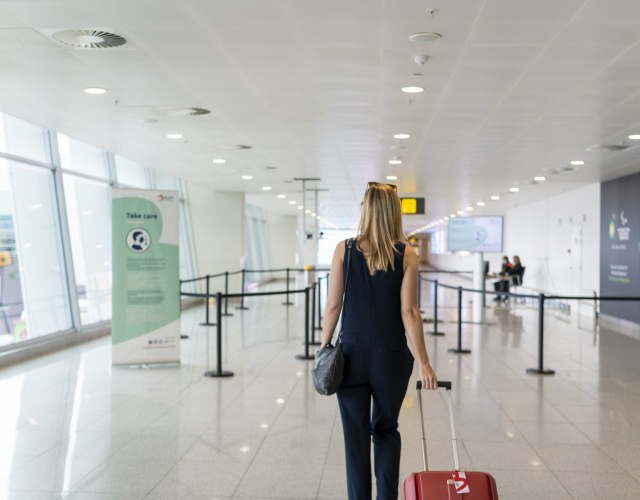As the impact of the coronavirus crisis grows every day, the way in which businesses must work has changed dramatically.
Many workers in this situation are now working remotely but what can be said for those still needing to attend work?
For those classified as ‘key workers’, working in the health and education sectors, various supply chains, including food manufacture and supply and those conducting construction and health and safety projects, it is business as usual.
These professions and services have been identified as essential to the function and wellbeing of the country and society and, as such, must continue to operate.
For employers of these key workers, there has been uncertainty and confusion regarding your rights and responsibilities. Here we have advice from Sheilah Cummins, Louise Plant and Graham Mead of Prettys Solicitors, Ipswich.
EMPLOYMENT
Laying off and short time working
The knock-on supply and demand effects of the pandemic across sectors will no doubt impact workloads and shift patterns for many businesses. This has posed questions on whether employers can lay off staff or reduce their hours.

Any change to your employees’ working hours or pay, will constitute a variation of contract and the normal principles relating to contract variations will apply.
Therefore, you will either need to have an express contractual right to lay them off or place them on short time working, or you will need to obtain your employees’ agreement to the change.
Without these, there will be a breach of contract that may entitle the employee to resign and claim constructive unfair dismissal and/or unlawful deduction from wages. We recommend that you check your contracts before coming to a decision and, if the position remains unclear, seek legal advice.
Employee rights
An employee may be eligible for a statutory guarantee payment, if they have at least one month’s continuous employment and there has been an occurrence that impacts the business’ normal workings and one that affects the employee’s role in particular.
For full-time employees, the payment is limited to five days in any three-month period and is pro-rated for part-time employees.
Employees may also be entitled to terminate their employment and claim a statutory redundancy payment when a lay-off or short-time period has lasted for four consecutive weeks, or a total of 6 weeks (of which no more than three were consecutive) within a 13 week period.
If an employee intends to do this, they must serve you with a notice. As an employer, you can serve a counter-notice contesting your liability to pay the redundancy payment, if you believe they would likely be able to return to normal working within four weeks of the date of the notice, for a period of 13 continuous weeks.
Statutory redundancy pay is calculated using the employee’s normal pay before the period of lay-off/short-time working.
The employment contract continues during lay-off or short-term working, so employees can still take pre-arranged annual leave during the period.
Furloughing
“Furloughing” is the practice of agreeing with employees that they will not work for you for a given period of time. It is a new scheme introduced by the Government in response to the Covid-19 crisis and designed to reduce redundancies. Employers can claim a grant of up to 80% of their wage for all employment costs, up to a cap of £2,500 per month, per “furloughed” worker.
The scheme will initially run for a three-month period, back-dated from 1 March 2020. Further details will be announced by the government shortly.
Unpaid leave and holidays
It is uncommon for employment contracts to include an express provision that allows the employer to request their employees to take unpaid leave. However, this may be an agreement you can make as an alternative to redundancies or lay-offs.
The usual contractual variation principles will apply and the arrangement should be properly documented.
During the period of unpaid leave, holiday can still accrue as the employment relationship continues. This is the same as other statutory leave, such as sick leave and family-related leave.
However, the European Court of Justice has distinguished between lay-offs and, for example, sick leave, Unlike sick leave, a laid off worker can still enjoy recreational activities and benefit from the rest and relaxation objective of holiday. It could, therefore, be argued that holiday accrual should be suspended but legal advice should be taken before applying this principle.
Employers may also be able to ask staff to take holiday during this time but the speed at which you can enforce this depends on whether there is a contractual right to do so.
However, we are in uncharted territory and given that the alternative involves making redundancies or reducing working hours, a more immediate requirement to take holiday may be deemed “reasonable”.
If there is no contractual right that requires staff to take holiday, so you will need to rely on statutory notice provisions instead. This means that you need to give staff notice of at least twice the length of the period of leave that you are asking them to take.
If an employee is currently on sick leave, you will not be able to force them to take their statutory annual leave.
Similarly, it would be a breach of the implied term of mutual trust and confidence to unreasonably cancel an employee’s holiday that has already been authorised and, in doing so, you could risk a constructive unfair dismissal claim being brought against you.
However, under the current circumstances it would be advisable to speak to the employee first in order to reach an agreement.
Self-isolation and pay
Those who follow government advice to stay at home and who cannot work as a result will be eligible for statutory sick pay (SSP), even if they are not themselves sick.
Online self-isolation notes are now available from the NHS website (https://111.nhs.uk/isolation-note/).
In response to the widespread pandemic, SSP is being paid temporarily from the first day of absence (and not from the fourth) and backdated to cover absences from 13 March 2020. Employers will also be allowed to recover SSP from the government. Further details of this scheme are expected in the coming months.
As many workers may not actually be sick when in self-isolation, they will not automatically be entitled to contract sick pay. Although, ACAS has advised that it is ‘good practice’ to offer this to employees.
Withdrawing job offers
Job offers that have not yet been accepted can be withdrawn as no contact is in place.
If an offer has been accepted and the conditions attached to that offer have been satisfied, a contract will be in place, so withdrawing the offer will constitute a breach of contract, unless a notice of termination is given in line with it.
Whether or not you are required to pay notice will depend on when the offer was withdrawn, how much notice the candidate was entitled to under the contract and when the employment was due to start.
HEALTH AND SAFETY

As things develop, it goes without saying that the advice and guidance from the government should be followed in terms of whether or not your business can or should remain open.
Where possible, employers are advised to make arrangements for their employees to work from home, and maintain, again where possible, a skeleton staff (if at all) at the place of business itself to limit the number of people in one place.
There are additional simple steps that can be taken within the workplace to ensure people who can still work from the premises are kept safe from the coronavirus.
Employers should take steps, such as providing staff with sanitizing hand gel or wipes and take measures to ensure that good hygiene is enforced across the business as far as possible, as well as making employees aware of safe distances and avoiding physical contact where possible.
It goes without saying that, if any employees were scheduled to travel to affected regions that steps are taken to postpone those visits.
If you are aware that you have a pre-existing illness or condition that makes you more vulnerable, then you should flag this up to your employer, so that appropriate steps such as isolation of that person where appropriate can be taken.
The situation is continuing to move and change at a fast pace. But, overall, it is of paramount importance that both employers and employees do all they can to act in a way that reduces the risk of the virus spreading, and taking all and any steps necessary as directed by either the authorities or by the business, and that everyone does their bit to assist accordingly.
BUSINESS CONTRACTS
Because contracts usually deal with what is foreseeable, it is unlikely that there would be a specific clause in an existing contact that covered a situation like the coronavirus.

However, many contracts do have a Force Majeure clause and the current coronavirus scenario may qualify under it. A Force Majeure clause potentially allows a party to a contract that cannot perform its obligations under it to limit its liability. A Force Majeure clause may contain a list of events that qualify, and this frequently includes epidemics, pandemics and government intervention.
If such a clause does cover the current coronavirus situation, then a business would need to take the appropriate steps to invoke the clause under the contract and to also understand what this would mean. Sometimes the clause may mean the contract is suspended, liability may be excused, extensions of time may be granted or the parties have the right to renegotiate or terminate.
If you are affected by the coronavirus, you should check your existing contracts now. If you are entering into a new contract that may be affected, you should draft its terms clearly to cover the outbreak.
It is an uncertain time for all businesses and advice and legislation are evolving in response constantly. Protecting employees and business interests are proving to be vital as we fight to do what is right for our communities as well as the future of our commercial markets. Therefore, seeking legal advice in relation to your duties as an employer is vital.




